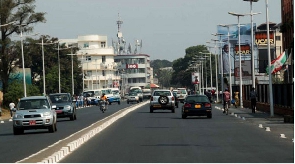Burundi’s immigration policies for other Africans have improved significantly, with the country’s visa openness ranking rising by 32 places in the year and becoming the second most open country in the East African Community (EAC) bloc.
According to a new report by the African Development Bank (AfDB), Burundi’s rise, mostly since 2021, is a result of Bujumbura accepting all travellers from Africa into the country either on visa-free travel (all East Africans) or visas on arrival (all other Africans). Burundi does not have electronic visas yet, but it does not require Africans to apply for entry permits before travelling to its territory.
Burundi’s decision to allow all Africans to travel without visa applications helped it rise from position 44 to 12, making it one of the most improved countries on the continent’s visa openness ranking alongside Benin, Nigeria and Ethiopia.
This may give President Evariste Ndayishimiye credit for reforming his country’s immigration and foreign policies since coming to power at the height of Covid-19. He is the current chair of the EAC.
In the bloc, The Africa Visa Openness Report 2022 shows that Rwanda is still the highest-ranked country on visa openness, allowing visitors from 18 African countries without visas, while granting visas to all other Africans on arrival. It was ranked 5th in Africa, behind Benin, Seychelles, the Gambia and Ghana.
Tanzania allows citizens from 19 African countries visa-free travel, 22 nations get visas on arrival, while visitors from 12 other African countries apply for permits before travel. Tanzania is ranked 20.
But Uganda (30th), Kenya (31st), the Democratic Republic of Congo (47th) and South Sudan (50th) all fell out of the top 20 on the list of African countries seen as most progressive in welcoming Africans.
At the report launch on Sunday, Jean-Guy Afrika, the acting Director of Regional Integration Coordination Office at the AfDB, said the ranking is not all-revealing but only hints at trends on the continent. For example, island nations and landlocked African countries tended to be more welcoming to African visitors. Seychelles, Cape Verde, Mauritius and Comoros were all in the top 20.
Still, landlocked countries with the most natural resources or better economies seemed more unwelcoming. South Sudan, for example, requires visas before departure from 50 countries and allows visa-free travel from only three neighbouring countries. Botswana, too, was cited as restrictive, requiring visas from visitors from 35 countries before travel.
“The causes vary, they are dynamic, but they generally straddle issues of geography, political, economic and cultural reasons,” he told an audience at the launch in Balaclava, Mauritius, on the sidelines of the African Economic Conference.
The index, he argued, was not a name-and-shame list of poor performers but an outline of recent trends. On the continent, the general pattern is that “you will need a visa to travel to other African countries at least 47 percent of the time.”
Some countries also have other non-tariff barriers. In the Gambia, deemed the third best African country in welcoming others, behind Benin and Seychelles, all air travellers pay a $ 20’ airport clearance’ fee on arrival and departure even though no African visitor needs to apply for visas before travel.
The Index Africa Visa Openness Index (AVOI), an initiative of the African Development Bank and the African Union Commission, measures the extent to which African countries are open to visitors from other African countries.
Researchers calculated the number of African countries whose citizens must obtain a visa before travelling there, the number of countries whose citizens may obtain a visa upon arrival, and the number of countries whose citizens do not need a visa to enter. Nations ranking best in these categories receive one (1) as the highest mark. The data was collected between June and August this year.
The index indicates the readiness of African countries to implement some of the continent’s recent protocols on open borders and the movement of the people, such as the Free Movement protocol, the Africa Continental Free Trade Area agreement (AfCTA), and the continental open skies agreement (SAATM).
Some 36 of 54 countries have improved or maintained their score since 2016. 13 of 2022’s top-20 performers have a higher score today than in 2016 when the ranking was launched.
“The AfCTA makes an important contribution to how trade agreements can facilitate the movement of people,” argued Zodwa Mabuza, the Principal Integration Officer, Regional Integration Coordination Office at the AfDB. But she warned that the phobia among Africans in welcoming others means the continent must discuss some kind of ‘AfCTA’ visa to address concerns on how movement under free trade can continue without disturbing security.
The report says trade may thrive in a more integrated continent but could still be limited if other attendant disciplines are kept the same.
“Access to the continent’s markets also depends on conditions that govern the trade in services. Trading across borders requires communications, financial services, and transport, and many of these involve people moving across borders. So do tourism, higher education, medical care, professional services and many others.
Africa News of Monday, 12 December 2022
Source: theeastafrican.co.ke













